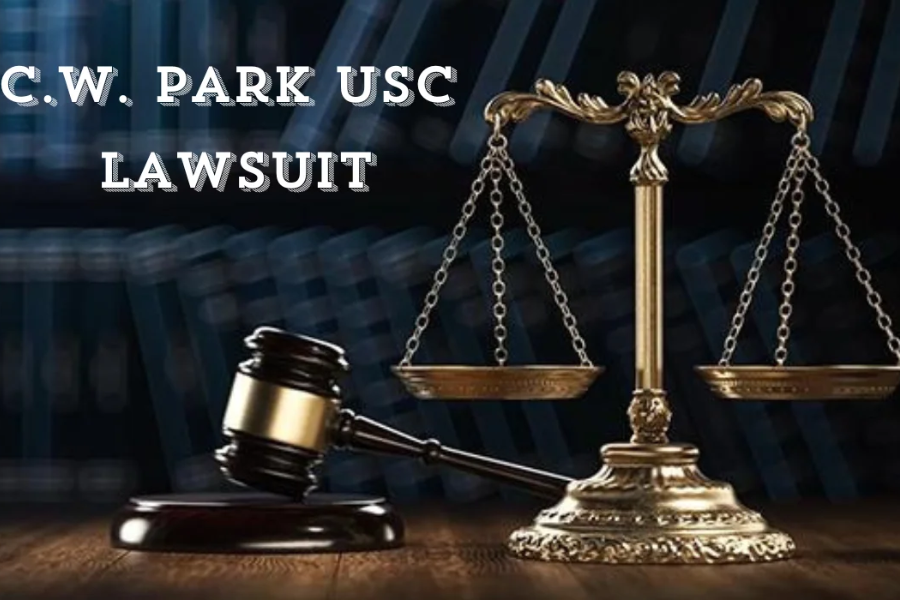Unraveling the C.W. Park USC Lawsuit: What You Need to Know
Introduction
In the unique domain of advanced education, the C.W. Park USC claim has turned into a critical reason behind lawful assessment, including the College of Southern California (USC). Documented in April 2021, Teacher C.W. Park is blamed for more than once physically attacking Jane Doe north of three years, beginning in 2011.
Past Jane Doe’s charges, more cases have surfaced against Park, who is blamed for explicitly focusing on female Korean-American understudies and mishandling his strategic, influential place to pressure them into sexual connections. This article investigates the complicated layers of the case, including its experience, USC’s reactions to earlier allegations, the impacted gatherings, expected results, possible repercussions for advanced education, and USC’s execution of new strategies.
Background History of the Case
The starting points of the C.W. Park USC claim give a nitty gritty record of the case’s tendency. Notwithstanding Jane Doe, three different ladies have approached, sharing encounters of unseemly remarks and non-consensual actual contact by Park. All in all, these records uncover a disturbing example. As the legal procedures progress, the intricacies and subtleties of the case are exposed, requiring a nearer assessment of its starting points.
USC’s Response to Prior Allegations
Understanding USC’s reaction to past claims is fundamental for contextualizing the continuous claim including Teacher C.W. Park. Lewd behavior and attack are serious issues that significantly influence casualties’ lives, and the C.W. Park USC claim is an obvious indication of this. It highlights the obligation of colleges and universities to safeguard their understudies from rape and offer fundamental help for recuperation. This article digs into the supposed unfortunate behavior, USC’s previous treatment of comparative cases, the actions taken, and the viability of these activities in tending to worries inside the foundation.
Parties Affected
The effect of the C.W. Park USC claim stretches out past lawful limits, influencing different people and gatherings both inside and outside USC. Understudies, staff, directors, graduated class, and the more extensive local area are totally associated with the procedures in various ways. Teacher Park needs to show that his excusal, regardless of his capabilities, happened under conditions that raise doubts of separation in view of nationality or orientation. Proof of particular treatment given to teachers of various foundations or sexual directions might fall under this classification. Moreover, remarks reflecting predisposition against male Asian Americans assume a critical part. Park’s undertaking is to demonstrate to the court that unlawful separation prompted his end. This portion looks at the complex snare of affected parties and investigates possible ramifications for their vocations.
Higher Education and USC’s Policy Changes
The C.W. Park USC claim compromises USC’s standing as well as influences different divisions inside advanced education. The reliability of instructive foundations in guaranteeing understudy wellbeing is currently under serious examination because of this case. All instructive divisions are in an awkward situation because of these claims. USC has answered by executing new techniques and plans to forestall such occurrences later on. Notwithstanding, the viability of these actions stays questionable.
Challenges for Higher Education
The repercussions of the C.W. Park USC lawsuit extend beyond USC, potentially tarnishing the reputation of higher education institutions. Many students are considering class action lawsuits, alleging widespread violations of Title IX rightsIn 2021, a gathering of current understudies and employees at USC documented claims, blaming the college for cultivating a “culture of quietness” with respect to sexual unfortunate behavior.Judicial procedures like Park’s might reshape colleges’ risk in class activity claims. Examples of segregation and counter, whenever demonstrated, could act as a reason for considerably bigger aggregate legitimate activities.
This segment explores the adverse impact on the perception of academia, examining how such incidents erode trust in the education system and the steps institutions must take to restore credibility.
Charting New Horizons
The C.W. Park USC claim has as of late turned into a point of convergence of warmed discussions. Recorded by Teacher C.W. Park against USC, this fight in court envelops basic issues connected with scholarly opportunity, separation, and institutional trustworthiness. How about we separate it:
- The Charges: Teacher C.W. Park, an eminent master in buyer conduct and showcasing, claims that USC encroached upon his privileges. He charges segregation in light of race and counter, attesting that he confronted antagonism and treacherous treatment from college authorities because of his global foundation. These claims bring up difficult issues about USC’s obligation to variety and correspondence inside its instructive climate.
- Scholarly Opportunity In question: At the core of this claim lies the idea of scholastic opportunity. Colleges are safe-havens with the expectation of complimentary reasoning and examination. Employees ought to have the option to communicate their perspectives unafraid of retaliation. On the off chance that the charges turn out as expected, USC’s commitment to scholarly standards — guaranteeing opportunity of thought — goes under examination. Besides, the case highlights the requirement for establishments to effectively address any segregation that might happen inside their walls.
- Connecting Disciplines: because of the suit, USC has firmly guarded its obligation to variety and correspondence. The college underscores the significance of giving an open and inviting climate for all employees. USC commits to overwhelmingly challenge the allegations made in the claim and has started inner examinations. The result of this fight in court will resound across the scholarly community, forming how organizations maintain their commitments of value, variety, and scholarly opportunity.
Facts:
Accusations: Professor C.W. Park was accused in April 2021 of repeatedly sexually assaulting Jane Doe over a span of three years, starting in 2011.
Additional Claims: Park is also accused of targeting female Korean-American students, using his authority to coerce them into sexual relationships.
Multiple Victims: Besides Jane Doe, three other women have reported inappropriate comments and non-consensual physical contact from Park.
USC’s Involvement: The University of Southern California (USC) is implicated in the case due to its handling of the allegations and its responsibility to protect students.
Legal Proceedings: The case is part of broader legal scrutiny involving accusations of discrimination and retaliation within the university.
Impact on Higher Education: The lawsuit raises questions about the integrity of higher education institutions in ensuring student safety and maintaining academic freedom.
Summary:
The C.W. Park USC lawsuit has become a significant case in higher education, involving allegations of sexual assault and coercion against Professor C.W. Park at the University of Southern California (USC). The lawsuit, filed in April 2021, not only implicates Park but also raises serious questions about USC’s handling of the allegations and its responsibility to protect students. The case has broader implications for academic freedom, institutional integrity, and the reputation of higher education institutions. As legal proceedings unfold, the outcomes could lead to significant policy changes and influence how similar cases are managed in the future.
FAQs:
What are the primary accusations against Professor C.W. Park?
Professor Park is accused of sexually assaulting Jane Doe over three years and targeting female Korean-American students for coercive sexual relationships.
How has USC responded to the allegations?
USC has implemented new procedures and policies to prevent such incidents and is conducting internal investigations. The university has also emphasized its commitment to diversity and equality.
What is the significance of academic freedom in this case?
Academic freedom is crucial as it ensures faculty members can express their views without fear of retribution. The lawsuit questions USC’s adherence to this principle.
Who are the affected parties in this lawsuit?
The lawsuit affects students, faculty, administrators, alumni, and the broader community, all of whom engage with the proceedings in various ways.
What are the potential outcomes of this lawsuit?
The lawsuit could lead to changes in university policies, influence the handling of similar cases in other institutions, and reshape perceptions of accountability in higher education.
How might this lawsuit impact the reputation of higher education institutions?
The lawsuit may tarnish the reputation of USC and other higher education institutions, leading to a reassessment of how these institutions handle allegations of misconduct and discrimination.
Discover the latest headlines, exclusive reports, and expert analysis at GermanyTribune.com.






